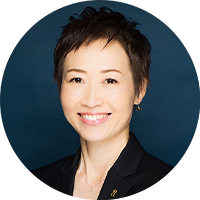Coach's VIEW is a business column authored by executive coaches in COACH A, aimed at providing valuable insights and effective approaches for leveraging coaching to foster organizational and leadership development. The column draws on the latest coaching trends and data, as well as insights from notable global publications on coaching.
Why Are Questioning Skills Necessary for Executives?

April 8, 2019

"I want to broaden my capabilities as an executive."
I am still coaching President A who said that to me in our first session together three years ago.
"Capabilities of executives" means their "quality of management judgment." I want to increase my ability to understand the "true" state of the organization.
This is what President A said to me strongly.
What Is the Ability to Understand the "True" State of the Organization?
We undertake various assessments, questionnaires and interviews to understand the state of the organization in executive coaching. President A also utilized the results of this organizational diagnosis in management.
President A suddenly said the following to me in the second year.
"There are times when I feel there is a subtle gap between the free comments on the questionnaires and the atmosphere I feel in the workplace."
"For example, there are many comments saying that 'I can consult with my superiors about anything.' Nevertheless, I rarely see superiors and subordinates consulting with each other in the workplace."
Mark Murphy, who has conducted numerous studies on leadership, has produced results like the following in research on 160,000 people over five years: "Nine out of 10 employees and managers are reluctant to tell the truth" and "70% of leaders convey feedback with indirect expressions."*
It seems that it is very difficult to convey "true opinions" in organizations.
The subtle gap felt by President A arose from a hypothesis concerning the belief that his employees may have more true opinions than he could personally obtain.
The president himself started thinking that the ability to take a direct approach to the true opinions of his employees was precisely what he needed in addition to data information to understand the "true" state of the organization.
What Is the Method to Approach the True Opinions of Employees?
President A first started ongoing one-on-one interviews with five of his employees. That is because he thought that their true opinions would reveal themselves with an ongoing relationship.
However, he started to feel that there were times when the same person would say his or her true opinions and times when he or she would not.
It is difficult in the first place to talk about one's true opinions. This is especially true if the person who you are talking to is the president of your company. Thinking in this way, President A set a main theme in his third year of our executive coaching of improving his own questioning skills.
Professional coaches, like me, study diligently every day to improve our questioning skills. I applied this method in my sessions with President A.
First, I asked him to create a list of questions he would attempt to ask his employees.
President A prepared the following questions.
Q1. How can you improve to enhance results?
Q2. What actions do you think you should take to experience a sense of accomplishment?
I gave him feedback on what I felt under the assumption that the questions of President A were directed toward me.
"I feel uncomfortable to both consider and answer these questions because the words like 'improve' and 'should' seem to be a denial of me."
Furthermore, I explored what kind of assumptions President A had while unraveling the meaning of the words used in his questions.
"Why did you use the word improve?
"What does a 'sense of accomplishment' mean to you?"
President A told me what he thought strongly.
"I think there is no doubt that a sense of accomplishment is truly the motivation to do a good job."
"There are surely many things that employees should do and should improve."
The assumptions of the person asking questions are conveyed to the person they are speaking to through their questions. The answerer then attempts to find the answer in these assumptions. People are very reluctant to give answers with their true opinions to questions formed on the assumptions of others.
Accordingly, I clarified the assumptions of President A. I then set aside these assumptions and revised the questions so that the answerer can speak freely.
"Change seems to give a flatter impression than improve."
"It is likely to be easier to speak about what you would want to do than what you should do."
As a result of this exchange, we changed those questions as follows.
Q1. "How can you change to be able to do better work?"
Q2. "What actions would you like to take to achieve strong results in your work?"
Executives and Questioning Skills
President A is taking on the challenge of improving his questioning skills through such exchanges each time.
Recently, he has started feeling that he came to be able to hear the true opinions of his employees that he could not obtain before. For example, some employees came to talk to him about a tough working situation both mentally and physically because they were caring for their parents. Also another employee came to ask for his permission to participate in a planning meeting to incorporate female point of view in business.
He says that he asks himself what assumptions he has before he asks other people questions.
He has heard the following comments from his employees.
"You draw out my thoughts and opinions."
"You are asking more questions that make me want to think about how I feel and what I want to do."
He notices his own assumptions and then puts them aside for one moment to ask questions that other people want to answer.
President A feels that thoroughly putting this into practice has clearly improved the quality and speed of management judgment.
I often hear words to the effect that companies can be no more than the abilities of their executives.
If you define like President A that broadening your capability as an executive is to enhance your ability to understand the true situation of the organization, this questioning skill is surely an important ability you want to have as an executive who leads your organization.
*Regardless of profit, non-profit or intranet, secondary use such as copying, diversion, selling etc. is prohibited without permission.
Language: Japanese
